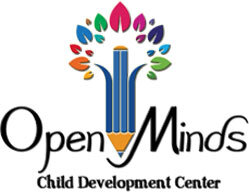Our curriculum is based on the widely used and research based Highscope Curriculum.
We have enhanced the curriculum with our environmentally-based emphasis on “active learning,” and educators who are teacher-researchers that fits the needs of each child, individually.
HIGHSCOPE WAS BUILT ON RESEARCH
Beginning in the early 1970s and continuing to the present day, the researchers at HighScope Educational Research Foundation have used rigorous, long-term evaluation and research to:
Evaluate early childhood initiatives for evidence of educational effectiveness
Provide ongoing consultation to local, state, national, and international agencies, and individuals who are responsible for developing early childhood evaluation systems
Assist policymakers and stakeholders with the evidence required to make informed decisions on early childhood policy and practice
Validate early childhood curricula
Develop tools to assess individual children and overall program quality
INFANTS-TODDLER
Research-based and child-focused, the HighScope Infant-Toddler Curriculum uses a carefully designed process of learning through discovery called active participatory learning.
During active learning, infants and toddlers learn about the world around them by exploring and playing.
The HighScope Infant-Toddler Curriculum is a comprehensive model that addresses all areas of development through six content areas and 42 key developmental indicators (KDIs) — the skills and behaviors at each stage of development that pave the way for school and adult success. Each KDI is connected to and reinforced by scaffolding strategies to support and gently extend children’s learning.
PRESCHOOL
The HighScope Preschool Curriculum is based on the principles of active learning and support of a child’s positive interactions with adults and peers.
Longitudinal studies show that the HighScope Preschool Curriculum promotes children’s development and provides lasting benefits into adulthood.
Our Preschool Curriculum is a comprehensive model that addresses all areas of development through eight content areas and 58 key developmental indicators (KDIs) — the skills and behaviors at each stage of development that pave the way for school and adult success. Each KDI is connected to and reinforced by scaffolding strategies to support and gently extend children’s learning.
THE OPEN MINDS PROGRAM
Environmentally-based curriculum means that the physical layout supports learning.
The environment is set up to give students a taste of home. We believe that when students are in a comfortable environment they learn better. Each classroom is uniquely designed and may include items like a couch for reading, lamps for softer lighting, real plants, etc. Within the home like environment, a minimum of 7 centers are set up (block, fine motor, writing, art, dramatic play, science, and library). The materials in each center are changed and new materials introduced to enhance and promote the interest of the children as well as new ideas for exploration. Current technology is also readily available for students to explore. The environment will reflect opportunities for child directed exploration, as well as teacher oriented experiences.
Additionally we believe that children learn best through “active learning.”
This means that children have direct, hands-on experiences with people, objects, events, and ideas. Children are encouraged to “construct” their own knowledge by pursuing their personal interests and goals. Children retain more knowledge when the things that they are learning are the most important to them.
Lastly our educators act as teacher-researchers that observe children in play and guide them in their exploration. The teacher is the researcher, the data gatherer, the learner, and the strategic contributor to the child’s capacity to learn. The responsibility is on our community of teachers to provide the contexts for learning for each student.
CURRICULUM ENHANCEMENTS
Math and Science Enhancements– math and science are incorporated into the daily routine, and classroom centers providing the children with time and space to discover on their own. Enhancement activities such as cooking and gardening allow for children to discover the connection between math and science in their daily lives.
Second Step– Using music and videos, take-home activities, and stories kids relate to, the Second Step lessons help instill social-emotional skills. Our youngest students will benefit more from preschool and be better prepared for kindergarten with self-regulation and executive-function skills that help them pay attention, remember directions, and control their behavior.
Literacy– a strong background in literacy is the beginning of a lifetime love of learning. Classrooms will revisit one particular book throughout the month in their Dialogic reading. This is designed to give students the opportunities to learn vocabulary, draw conclusions, expand memory, and enhance a student’s ability to communicate.
Spanish – Spanish is taught weekly to all children infants through Pre-k. Research says that all children are born with the ability to speak any language and that ability is best reserved when students hear those languages early in life. Throughout the year students will be learning how to count in Spanish as well as colors, shapes, and other vocabulary relevant to them.
Lifetime Sports-sports are an integral part of a child’s development, teaching teamwork, large motor coordination, and hand-eye coordination. Each month students will learn the rules, scoring, and technique of a different sport. Sports include but not limited to soccer, golf, and tennis.


